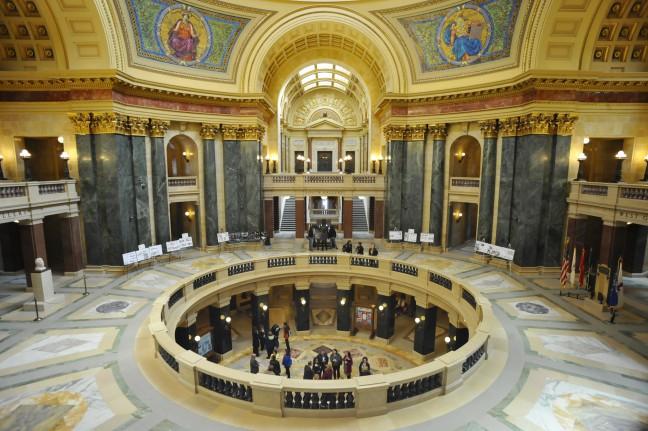After Gov. Scott Walker called for a two-year extension to the current University of Wisconsin System’s tuition freeze, some critics have called the move short-sighted and an overly simplistic solution to keeping higher education affordable.
Sara Goldrick-Rab, a UW educational policy studies and sociology professor, said the relative financial stability of UW-Madison compared to other UW System schools will result in major disparities in the proposed tuition freeze’s effect on students.
“Unfortunately, what the governor has done affects all the schools the same way, and that’s not smart because the students at these schools are very different,” Goldrick-Rab said. “At the places where the students need the most help, this tuition freeze is going to hurt them.”
She said there is a huge income disparity between students who go to school to UW-Madison and those who attend other UW System schools. She proposed perhaps some of the projected surplus go toward providing higher quality education and increased financial aid for students attending UW System schools across the state.
The first two-year tuition freeze in UW System history was implemented last year after the state Legislature found over half a billion dollars in reserve fund accounts across the UW System. It will remain in place until 2015.
The response a year later is motivated largely by the same mentality, that in a time of a budget surplus, students should not see tuition increases.
“This freeze continues our commitment from the last budget to make college more affordable for working families and students across our state,” Walker said in a statement.
The UW System is projected to end this year with a $1.1 billion surplus, system President Ray Cross announced at last week’s Board of Regents meeting, although he noted 75 percent of the surplus are already committed funds with a determined purpose.
“I intend to work vigorously to find a reasonable solution. I am confident that we can get the best budget possible for the university,” Cross said in the meeting.
Scot Ross, executive director of One Wisconsin Now, said it is crucial to think about the implications of a tuition freeze on the future cost of tuition, citing the aftermath of Wisconsin’s relatively forgotten one-year tuition freeze imposed for the 2000-2001 school year.
After holding down tuition for just one year, UW saw tuition hikes of 18 and 15 percent in subsequent years, according to UW tuition records.
UW System spokesperson David Brukardt said the system is not in a position to speculate on the effects of the freeze on future tuition figures due to the range of undetermined revenue sources including federal, state, gifts and grants.
UW Chancellor Rebecca Blank has called to increase tuition for non-resident students to help hold down tuition for Wisconsin residents, as tuition for non-residents is also currently frozen, Brukardt said.
“Its an issue that has many facets. Compared to peer campuses across the Midwest, in the Big Ten and across the nation, our tuitions are considerably lower already,” he said. “From an economic standpoint, the market could probably bear higher tuition costs for out-of-state students, and that may be something the [Board of Regents] takes a look at.”
Rep. Dean Knudson, R-Hudson, said students should reap the benefits of a system surplus.
He praised Walker’s proposed tuition freeze for its aim to keep tuition affordable for Wisconsin residents, but also said he recognizes that it was not a long-term solution to the broader college affordability crisis.
“Its important for us to have a world class university system but to also have a system in which quality education be affordable and accessible for Wisconsin families,” Knudson said. “However, in the long-term this will not be a sustainable model.”
Republican legislative leaders in both houses and budget committees have said they would look to enact the tuition freeze extension next year if they maintain control over the Legislature after the upcoming elections, the Milwaukee Journal Sentinel reported.


